Do you want to tell him after receiving the cancer diagnosis?
Birth, old age, illness and death is a process that everyone has to go through.
Today, we are going to discuss a very heavy problem, but if it happens, we have to face it: if your family is diagnosed with cancer, should we tell him? How to tell him?
Let’s see how Dr. Wang Xing answered this question.

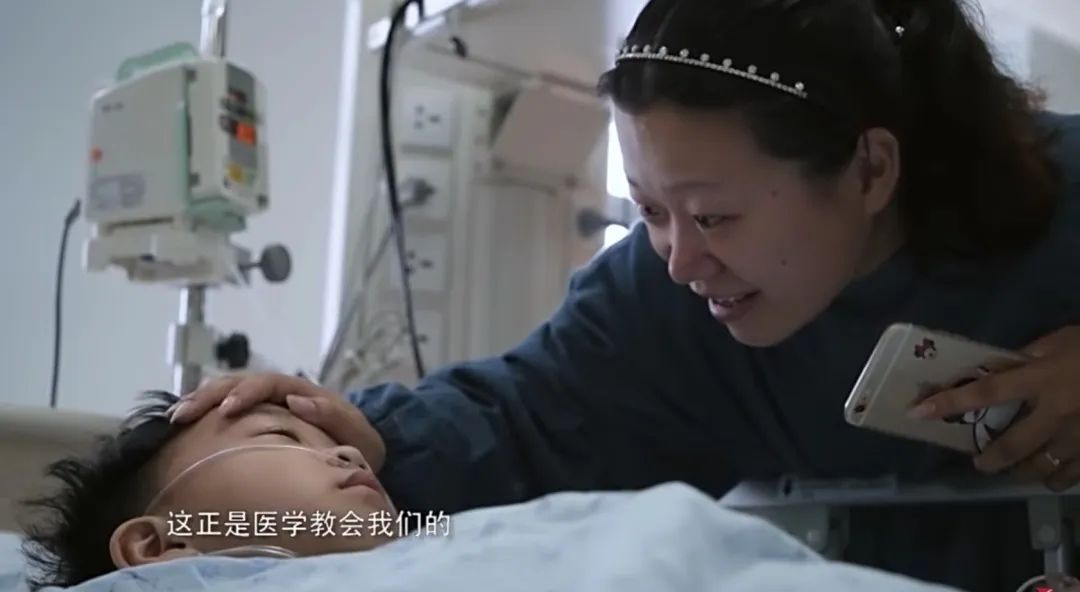
"I asked Dr. Wang" NO.7
Xiao Liu: Dr. Wang, after receiving the cancer diagnosis certificate, should I tell him?

Xing Wang
During my internship, I saw a board in the middle of the nurse’s station with small cards in red, yellow, blue and green. The names of patients were written on the cards, and the colors represented different doctors in charge. This is the list of patients in the department.
I noticed the words "I don’t know" written in the lower right corner of a small piece of paper, so I asked the teacher at that time what this meant. The teacher smiled strangely, compared with me and said, "The patient doesn’t know.". I’m telling you, you’d better not provoke such patients, and be careful to say that your family members are bothering you. "
But as it happened, the resident I was with happened to be in charge of this patient. Senior brother said that the patient discovered that there was a big tumor on the colon only recently with blood in his stool. His daughter and all the doctors and nurses told him never to tell him about his illness, for fear that he would know that he couldn’t stand it. My brother asked me to ask about the medical history and write a pathology. I went very nervously and kept saying to myself, "Don’t spill the beans, don’t spill the beans."

Stills of "The World on Earth"
This is a kind-looking grandfather, about 70 years old, who needs colon cancer surgery. I dug out my notebook and asked about the medical history. It went smoothly from the present medical history to the past medical history until I asked him whether it was "black stool or blood in the stool;" Is there blood first, then there is stool, or is there blood first and then there is blood last? ".
Grandpa smiled cunningly, and he asked me a very lethal question: "That young man, tell me, besides tumors, what other diseases have bloody stools like me?"
"This … should … like …"
At that time, I was also inexperienced, and my social experience and clinical experience were seriously inadequate. I was speechless by this question. Grandpa breathed a sigh of relief and nodded with a smile, as if suddenly relieved. He seemed to see my nervous and uneasy mood, waved and said, "Sit down, don’t mention it, let’s talk."
"Young man, in fact, I already know what’s wrong with me. You said my illness was not colon cancer, and I’m not stupid, am I? Two years ago, when my wife got cancer, I kept it from her with my daughter. Now it’s their turn. How can they deceive me? "
I asked, somewhat puzzled, "Then, why do you look … as if you really don’t know?" I wanted to slap myself as soon as I said it. He’s not stupid, I’m stupid. Isn’t this a typical cliche? Just refuse to admit it! However, the old man seems indifferent, as if he has really known about it for a long time.
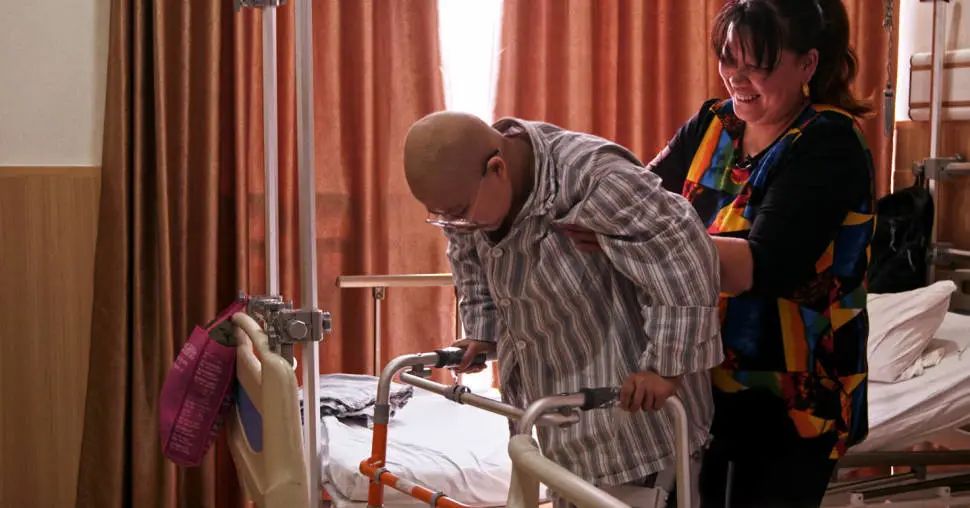
Stills of "The World on Earth"
"It’s not to be stupid, it’s rare to be confused. Children are not Ann’s bad heart. They are just afraid of me, aren’t they? But this man really knows his body too well. I used to be in great health. When I was young, I probably ran faster than you. I haven’t had any problems climbing mountains these years. I feel so weak these months, I knew something must be wrong, and sure enough, I can’t escape, hehe. "
The old man shook his head and sighed, but he didn’t feel that he was desperate. Instead, he looked very calm, and he felt fearless when his time was up, but he played chess and laughed with the terrifying.
I found that I really couldn’t tell a lie, and I joked, "That is to say, the child doesn’t want you to know, and you don’t want the child to know that you know, my mother, your family is infernal affairs." I also thought of a particularly funny sentence in my mind: now that I know, I can’t let my family know that I know he knows …
When I left, my grandfather winked at me. It seems that I really want to keep a secret for both sides.
After working as an oncologist for many years, I found that this situation is not accidental, or even a common phenomenon. Family members and patients seem to be separated by a window paper, even if each other knows that the other party has felt it, it will not be significant. Both sides are like standing on a subtle and dangerous information seesaw, and no one dares to make a move.
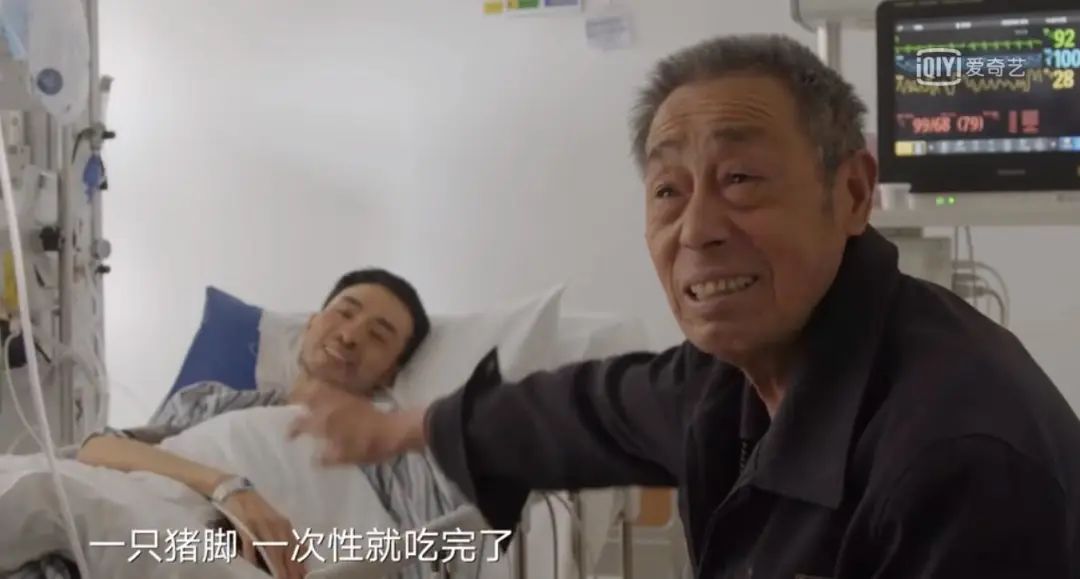
Stills of "The World on Earth"
01
Only Chinese has no right to know?
When studying medicine, the teacher said that this kind of situation only exists in China, because patients in China have no right to know, and only family members have the right to know. If it is in the United States, it is up to the patient to decide whether his family members have the right to know, because the patient’s illness belongs to the patient’s own privacy, and he enjoys the most important decision.
In fact, however, the problem is not so absolute. In fact, similar studies have been conducted in countries all over the world, not only in China, to answer this question: Do patients want to know their illness or not, and will their families tell them the real illness?
A study by Italian lazaro Repetto found that among 194 elderly cancer patients’ families, 64.8% chose to tell the patients complete information, including diagnosis content, treatment plan and prognosis. In addition, the spouse of the patient is more inclined to tell the illness (80%), while the child is more inclined not to tell (58.7%).
Research shows that not telling the patient about the illness is not related to the patient’s own wishes, but is most related to the psychological vulnerability and needs of the guardian/caring family. Because the elderly need families to solve their health problems, the skills and mentality of family members are particularly important.
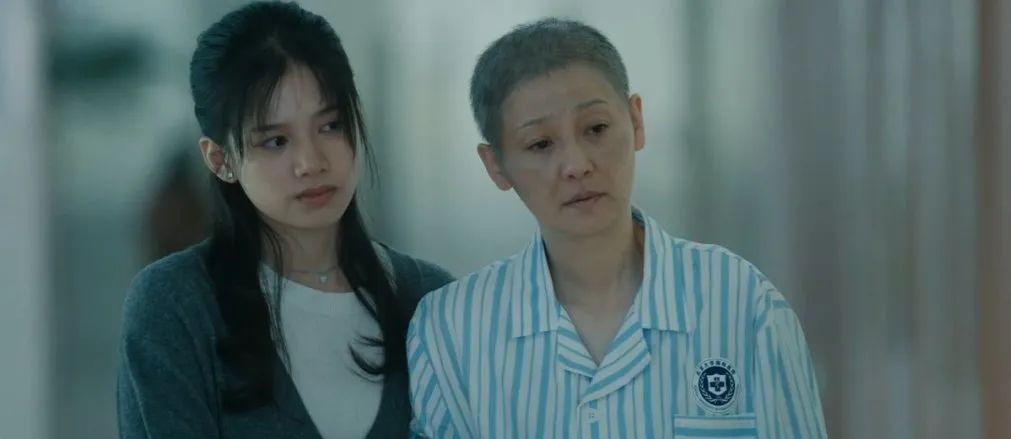
Stills of "Everything About My Mom"
It can only be said that the lack of the right to know is indeed more common in China, but even so, 75% of patients in China made it clear that he wanted to know about his illness.
Why is this problem particularly serious in China? It is because of the great difference in knowledge structure between our parents and us that the two generations have different understandings of diseases. To put it bluntly, they don’t understand, or we think they don’t understand. Many old people have only primary school or junior high school education, and they have been farming and working all their lives, and they don’t know a few big characters. If you let him know that he has a tumor, he can only think of someone in his neighbor who has a tumor and died, and then he can’t extricate himself from his depression without thinking about how to treat it.
When the cultural gap between the two generations is not too big, there will be less concealment. I once had a patient who was an old professor in Tsinghua University. He made his blood test results into a line chart for statistical analysis. I asked his son if he had kept his father’s illness from me. His son scratched his head and said, "I still kept it from him? He is smarter than any of us. Who can hide him? "
Therefore, it is precisely because of this gap, or the existence of differences, that the younger generation thinks that they need to hide and have the ability to hide. Parents don’t need to understand this, just do what the younger generation says.
From another angle, why do patients in China willingly accept being cheated? I believe that if it is not your own illness, but the house is going to be demolished, how much money or how many suites will be compensated, it is impossible for your father to hide it from you. One of the biggest problems is that it costs money to see a doctor in China. We all know that medical insurance can’t reimburse all, so in theory, whoever spends money is in charge. When the health problem involves money, it becomes a very complicated social and economic problem.
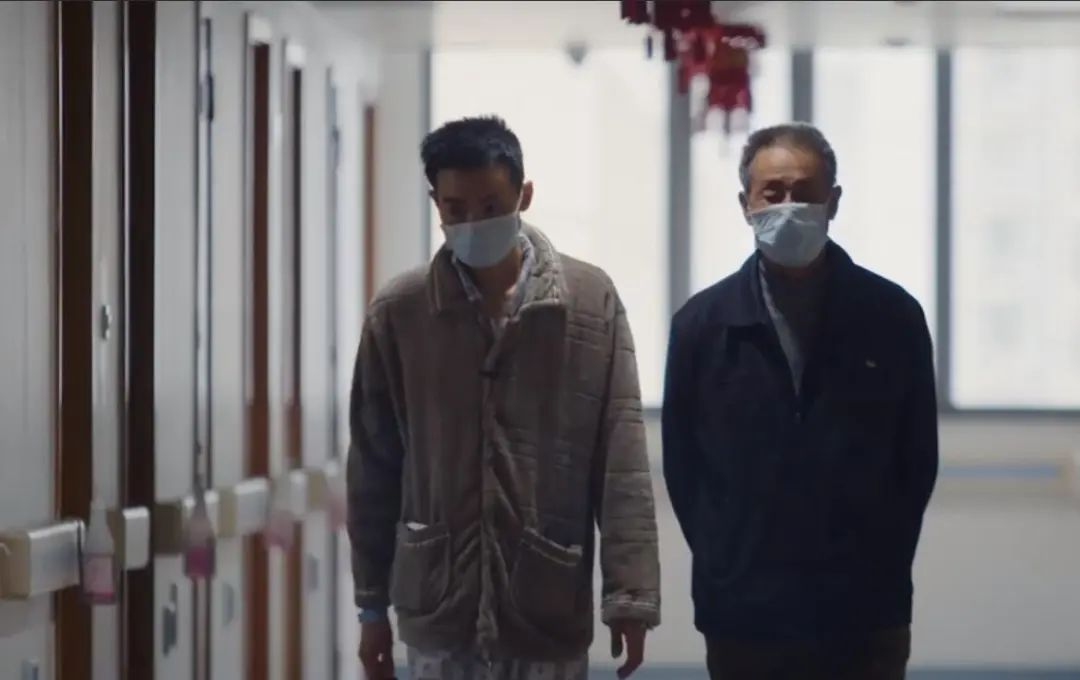
Stills of "The World on Earth"
I saw an old man sighing in the ward, so I went up and talked. He has just finished the operation, and the pathology of the operation is in the middle stage. So I comforted: "Then make up some chemotherapy. Anyway, chemotherapy is nothing, and now the pain is much less than before."
But he kept "tut-tut", as if he had some dissatisfaction in his heart: "I’m not worried about this problem, I’m actually worried about … Ah …"
I’m a little puzzled.
"I’ll tell you straight, in fact, my son and I said, I this is early, don’t need chemotherapy. But when I checked, it seems that this one needs chemotherapy. You see that you also said that chemotherapy is needed, right? "
I just nodded.
"Actually, after I buy a house for my children, I don’t have much money left in my hand. Now I have to take care of their children, and I have to pay a lot for my monthly pension. So now they tell me that they don’t need chemotherapy, so I wonder if they are afraid of spending money. I guess this daughter-in-law doesn’t want to treat me well! "
I advised, "Then you can treat it yourself, and chemotherapy doesn’t cost much now."
The old man gave me a white look: "You said that there is not much money to relax. How much money can we ordinary people have? Now I have tens of thousands of dollars in my pocket. I want to say that I am cured. They must let me do it myself, but I won’t. Doctor, please help me persuade them that this can’t be done without chemotherapy. I can’t delay this! "
I know, this is another family ethics drama. I have never been involved in this kind of thing. I said to the old man, "Please ask me the next time you make rounds, and I will also suggest it to my family. As for how to choose, your family should sit down and discuss it calmly. "
I can’t forget the look in his eyes. Such a plot happens all the time in the hospital.
Who pays, who knows.
02
What can "white lies" do?
Almost every cancer hospital has a printing shop at the door. Once I went to print a tender, I heard an uncle next to me ask, "Little girl, please do something. Can you do this here?" He took out a picture from his pocket, which was a pathological diagnosis report of our hospital. The little girl raised her eyebrows and took a look. Before the uncle said anything, she immediately nodded and said, "No problem, change it to benign, right?" Oh, what you wrote here is adenocarcinoma, just change it to adenoma. What do you think of his lymph node metastasis? For example, take this 4/5, which means that 4 out of 5 lymph nodes are metastatic. I’ll change it to 0/5 for you, and you will explain that there is no metastasis. Is that all right with you? They all changed it this way. We change dozens of copies every day, which is very skilled. A report is 30 yuan. "
I have to be surprised, now the little girl in the print shop is so professional in reading a pathological report! I change dozens of copies a day. According to the flow rate in our hospital, I feel that at least 1/10 of my family members come here to change their reports. Plus, if you go to other print shops and modify them at home, there will be more.
When seeing a doctor, too, we often come across a book that our family members showed us, which was carefully revised, and then took out a tattered piece of paper from our pocket, which was the "original".
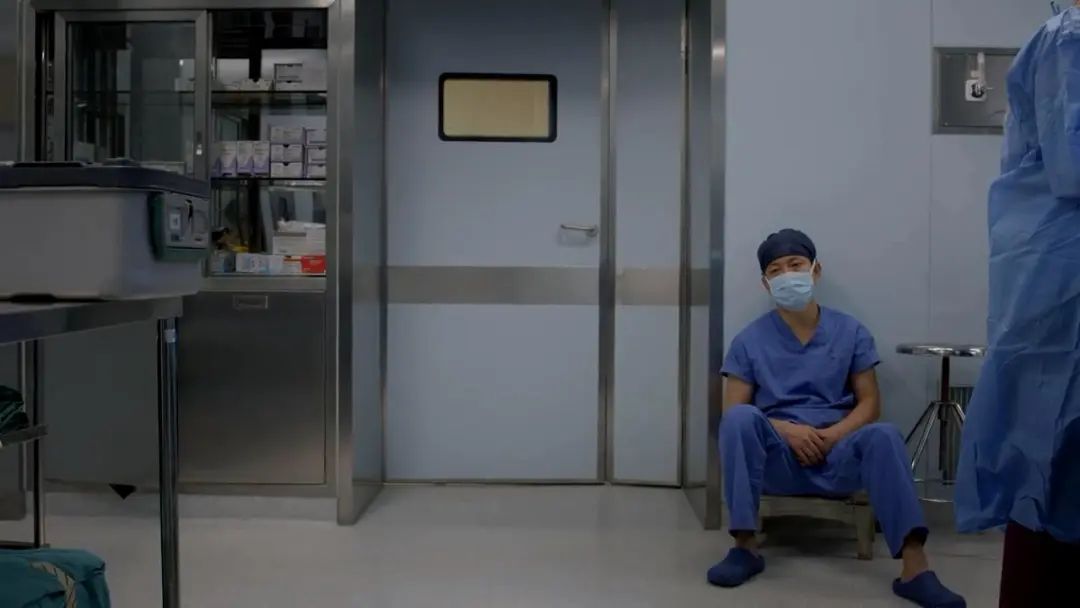
Stills of "The World on Earth"
Sometimes, the hospital will prescribe some oral chemotherapy drugs, and many family members will go to the pharmacy to buy a bunch of vitamin tablets, switch the drugs and tell the elderly that the doctor wants to supplement vitamins every day. This practice is risky, because it has to rest for a week after eating for 2 weeks, and some old people have been eating it as a vitamin pill, but fortunately it was found in time, otherwise the consequences would be unimaginable. It may not be a problem to take chemotherapy drugs for two more days, but if you want to hide it from a person, you need to let everyone except him know the truth, otherwise, if this drug is eaten by an unsuspecting person or taken by a child at home, it will really ruin more than one person’s life.
I also heard that some family members buy off the patients around them, for example, giving them something to eat and drink, making them say that they are suffering from diseases such as ulcers and cysts, and then telling their relatives that he is also suffering from benign diseases.
Of course, the vast majority of patients’ families will go into the consulting room in advance and "explain" a few words to the doctor when they see the doctor for the first time. I have to say that the next time you "explain", learn more about the book "Self-cultivation of Actors". Acting furtively, looking extremely obscene, and winking at each other under the patient’s nose, you also cheat those big pig’s feet like the emperor in the TV series. In real life, as long as this person is not stupid, everyone knows what you mean.
In fact, in the cancer hospital, you can rest assured that doctors are usually more cautious than you, and they will not tell the patients what they can, but will ask who their family members are first. From the perspective of survival desire, doctors are more afraid of being beaten by their families, so please relax.
03
How to judge whether to tell about "cancer"?
The strategies chosen for different diseases are quite different.
Early patients can be told truthfully or concealed in good faith. Ms. Li is 45 years old. She found early lung cancer and had an operation. The results of the operation showed that it was also early. Family members can choose to tell the truth. After all, it is early and patients can gradually accept the reality. Some family members choose to hide it, anyway, it is early, and there is little recurrence in the follow-up, and further treatment is not needed. There is no mistake in principle in either choice.
Intermediate patients must be informed. Mr. Wang is 50 years old this year, and his stomach cancer is in the middle stage. The doctor thinks that chemotherapy is needed to consolidate after the operation. From the doctor’s point of view, it is suggested that this situation must be told, and don’t just worry about the patient finding out that he has cancer. Because many patients will choose "no chemotherapy" without knowing the truth, which is the most unfavorable for their condition. If you change the doctor’s treatment decision privately just because you are worried about telling the illness, the patient may suffer more serious potential harm, which means that your seemingly "gentle" decision may cause more harm.
Terminal patients are hard to be confused. Mr. Zhang is 75 years old with advanced gastric cancer. Doctors believe that there is no very good treatment mode from the perspective of disease treatment or Mr. Zhang’s physical tolerance, and doctors do not recommend more active treatment. For such patients, the only thing we can do is to improve the quality of life of patients and reduce the pain of diseases, rather than aiming at curing cancer and prolonging life. Therefore, in the strategy of informing, we can adopt the mentality of "hard to be confused" to conceal patients.
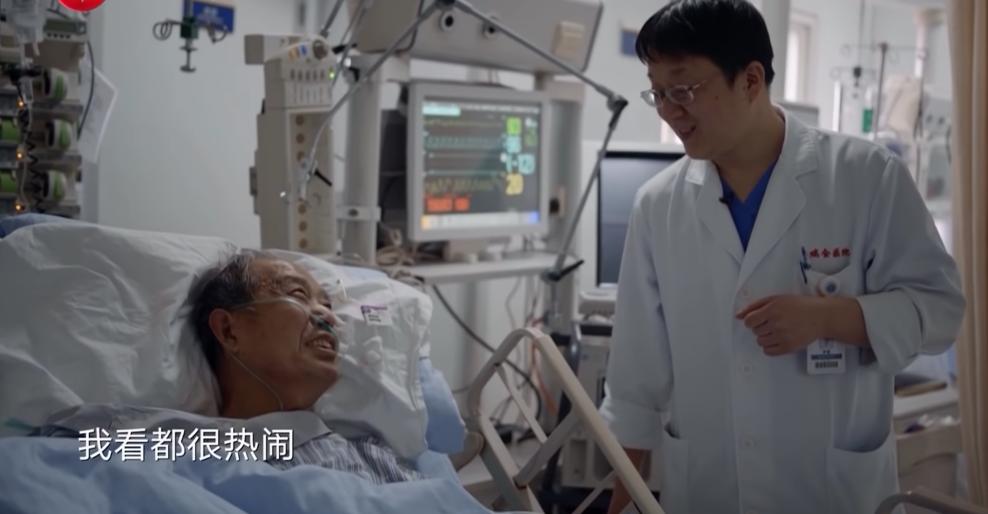
Stills of "The World on Earth"
Different educational levels have different strategies. For people with different knowledge levels, we should choose different interpretation strategies.
Elderly patients with low education can keep everything simple. Suppose you want to explain cancer to an 80-year-old grandmother with a primary school education, it is difficult for you to explain why cancer occurs from the perspective of gene mutation and so on, and it is difficult to describe whether it can be cured from the terms of "5-year survival rate". You may need to replace it with words that are familiar to the elderly, such as "nothing, the doctor said it would be over if you cut it", "a small pimple has grown in the lung, and the fingernails are so small and benign" and so on.
Young, highly educated patients can tell the truth. However, if you are dealing with a young and middle-aged Kochi in his thirties and forties, as a partner of ta, you can’t completely hide it. Ta will have a stronger understanding of his illness and have the ability to search information online by himself. For such patients, whether you or a doctor, you should use more professional and standardized language to accurately describe the state of ta disease.
What matters is not what to say, but how to say it. In the process of telling bad news, what methods are there? As a doctor, I don’t advocate blind concealment. Choosing appropriate methods to inform can effectively reduce the degree of patients’ great psychological trauma and shorten the time from passively accepting bad news to actively accepting bad news.
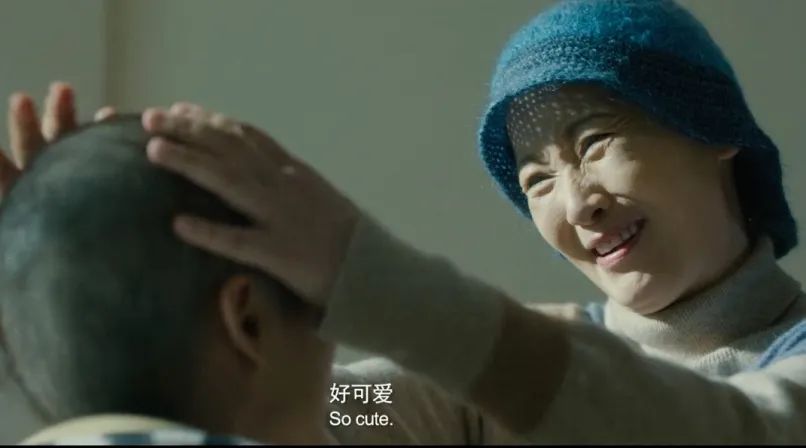
Stills of "Everything About My Mom"
A psychology professor in The University of Texas MD Anderson Cancer Center, USA, once put forward a "six-step communication method of bad news" for cancer patients, which is designed to help medical staff better inform patients and their families of the truth from the process, and you as a family member can also learn from it.
Six-step communication method of bad news
Step 1: predict the outcome of the conversation
Practice it in your heart, and sort out what you want to say with your friends or friends first, so that you can clearly express what you want to say in an appropriate way and tone.
Choose a suitable place, pay attention to privacy protection, and let the other party decide whether to listen by themselves or find the most trusted relatives to listen together.
Step 2: predict the patient’s thoughts.
On the one hand, it is necessary to understand the patient’s current understanding of his disease, such as asking, "Do you know what all the tests we have done recently are for?" Perceive patients’ current understanding of the disease by beating around the bush. Some patients may not understand it at all, while others may have seen it by accident and already know it.
Step 3: Get the consent of the patient.
Even if you know that the patient really wants to know his own situation (most people do), you should ask the patient’s permission, but you should pay attention to the way and tone, such as: "Do you want to hear what the doctor said? Do you want to see the test results? " Some patients will say, "You just know." At this time, we should fully respect the patient’s wishes, and even say, "Yes, anyway, there is nothing wrong. The doctor has taken care of it."
Step 4: Give background information.
When telling the truth, because most of you say he listens, we should pay attention to the following points:
1. From what the patient can understand, such as where there is a tumor at present and whether the tumor has spread;
2. Avoid too direct statements, such as "the doctor said that the situation is not optimistic now, there is no hope, it is late, and it has been delayed";
3. Explain step by step to ensure that the patient understands before entering the next knowledge point/link;
4. If the prognosis is really bad, avoid showing the attitude of "this is the only way" and always leave hope for the patient. Contrast can be used to show that the patient’s condition is not the worst. For a very common small example, if it is non-small cell lung cancer, it can be said that the prognosis is good and the cure rate is high; If it is small cell lung cancer, it can be said that it is particularly sensitive to radiotherapy and chemotherapy, leaving hope for patients.
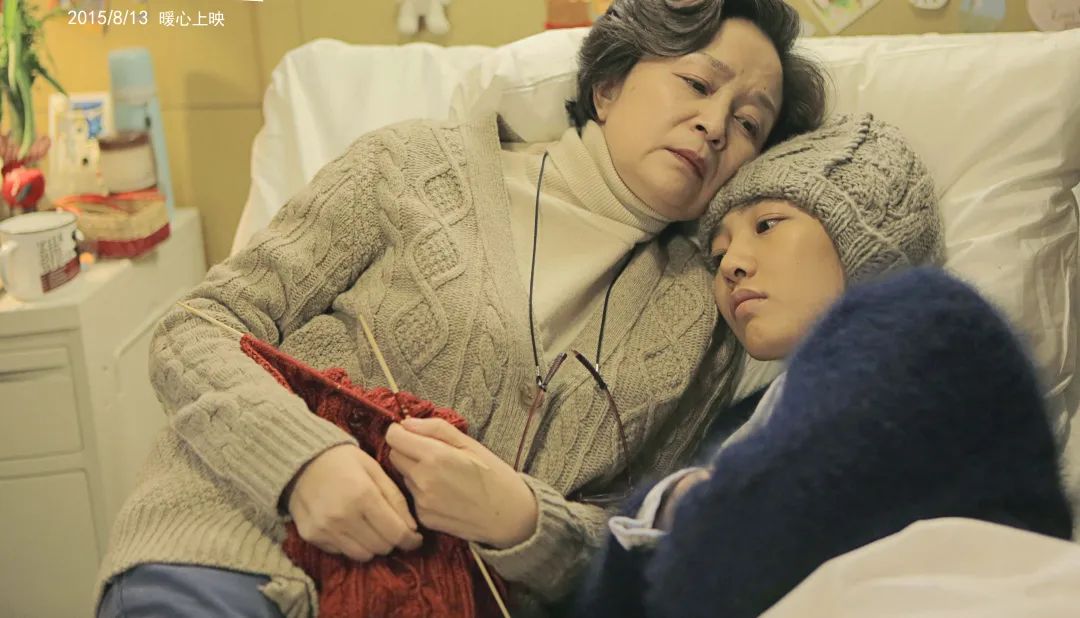
Get out of here! Stills of tumor jun
Step 5: Be empathetic.
You should know that you can never replace the patient to complete this acceptance process. Anyone who accepts bad news will go through several processes, such as rejection, depression, depression and acceptance. Everyone’s process from rejection to acceptance may be very different, but there is no shortcut.
Many patients’ families will say, "Look, I said I can’t tell him. After telling him, he collapsed, and he couldn’t eat or sleep." Some family members even blame the patient: "I told you it was nothing, why are you still thinking!" " These are all wrong. We must give the patient enough time to accept and digest. Any emotion of his should be understood and tolerated. What the family members should do is to actively accompany him and not rush for success.
Step 6: Work together to find a way and summarize.
Finally, we should give the patient a conclusive summary, tell the patient what kind of state we are in at present, and what direction we should work hard in the future, so that the patient can always keep hope. To let the patient know that you and he are comrades in arms, you will listen to his thoughts and feel his emotions. Hugging him moderately makes him feel your warmth, and enables him to fully trust you. You can actively look for countermeasures with him.
It is normal and necessary to accept his collapse, and no one else can replace it. You know, this is not a bad thing. When people accept bad news, especially cancer, they have to go through five stages: refusing to admit reality, being angry, looking for false hope, being depressed and finally accepting reality. It takes time for people to reconcile with bad news. Don’t underestimate anyone and don’t deprive anyone of the opportunity to think about the end of life. If the patient asks you for proof, but you always deceive him with lies, it is not really cruel until he can’t move for the last month or two that he learns the truth that has been concealed by you. At this time, he doesn’t even have the chance to realize his dream at last.

* The above content is taken from "Patient’s Family, Please Come", and some pictures are from the Internet.
Doctor Wang Xing’s Health Trilogy

Original title: "Do you want to tell him after receiving the cancer diagnosis? 》
Read the original text